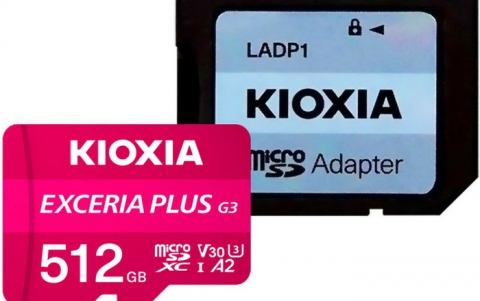Silicon Power DS72 1TB Portable SSD
3. Tests
In order to test the Silicon Power DS72 1TB drive we used the following test system:
- CPU: AMD Ryzen 9 7950X
- Thermal compound: Noctua NH-T1
- Case: StreaCom BC1 V2 Bench Table
- Motherboard: Asus ProArt X670E-CREATOR WIFI with 1807 BIOS
- Memory: 2x24GB Crucial DDR5-6000 CL48 (EXPO Profile)
- PSU: be quiet! Dark Pro 13 1300Watt
- Main Storage: Samsung 980Pro 1TB
- VGA: MSI GeForce RTX 4090 SUPRIM X 24G
- Operating system: Windows 11 x64 + latest motherboard/AMD chipset drivers installed (DirectStorage enabled drive)
The AJA System Test gives a rough idea of the drive's performance. We got around 951MB/sec writing and 880MB/sec reading, nice results here.
![]()
The ATTO Disk benchmark gives us more details about the drive's performance, depending on the used file size. As we can see, performance differs depending on file size, anything above 4k file size should give you good speed, while max speed comes after 128kb file size:
![]()
The ATTO Disk Benchmark v4.00 reports slightly lower numbers here but are close to what Silicon Power advertises
![]()
The AS SSD Benchmark didn't show a great overall score, probably due to low 4K and 4K-64Thrd scores:
![]()
enabling "better performance" policy doesn't seem to affect the above scores
![]()
Passing to the CrystalDiskMark software we got results from 3.01, 6.02, 7, and the latest 8.04 versions. The performance will differ in most tests since CrystaDiskMark has changed its internal evaluation in all the versions, but they should give you an idea of what to expect.
The first CrystalDiskMark v3.xx gives us around 686MB/sec reading and 825.7MB/sec writing speeds.
![]()
Passing to the next CrystalDiskMark 6.xx version, we got higher performance with 894.6MB/sec reading and 838.5MB/sec writing speeds.
![]()
The CrystalDiskMark 7.xx shows much higher reading speeds with 1025.64MB/sec and 850.31MB/sec writing speeds, reaching what Silicon Power advertises on their website.
![]()
The last available CrystalDiskMark 8.xx series
![]()
While working with I/O Meter software the software reports 13.999,64 points.
![]()
We also tested if the drive would slow down when writing files, which is important when transferring big files, our source was a Samsung 980Pro 1TB NVME SSD drive with two big files, the average writing speed for the 44GB file was around 377.60MB/sec, much lower than the average writing speed that all above tests showed.
![]()
, while for the 200GB file size, probably due to overheating, the drive slows down dramatically its writing speed and the task needs almost 20:53mins.
![]()
Performance without external cooling
When external air cooling, performance improved and pumped up to 282MB/sec for the same test.
![]()
Performance with external AIR cooling
The drive at idle mode was running at 40 Celsius and under normal test, was around 60 Celsius, while under serious stress test reached 81 Celsius and probably thermal throttles and reduced performance. With air cooling and at the same test, it produced 75 Celsius.
![]()
Apart from the internal temperatures that play a huge role in the overall performance, the external temperature seems well controlled even at full load scenarios which never exceeded 48 Celsius (at the aluminum part).
![]()
![]()
![]()
Silicon Power mentions that transfer speeds may fluctuate or drop when copying/moving files to a USB drive on a Windows 10 system. As a solution, Silicon Power mentions to re-format the USB drive to NTFS and if possible update the USB driver and connect the drive to different USB ports.













